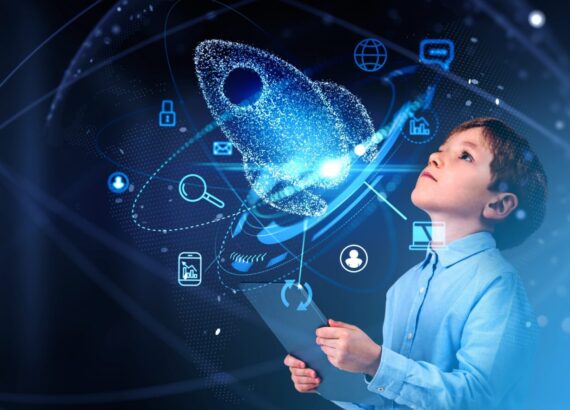Will AI Replace All Jobs The Pros, Cons and Uncertainties
You may have heard the chatter in recent years that Artificial Intelligence (AI) is coming to take away all of our jobs. While this may be a scary prospect, it’s still not clear if, or when, it will happen.
In this article, we’ll take a closer look at how AI might impact our jobs and consider the pros and cons of this potential transformation. We’ll also explore the deep uncertainties that remain, as AI continues to surprise us with new capabilities and implications for the future of work.
So if you’ve been wondering about how AI could potentially change our working lives, you’re in the right place. Let’s dive into what we do (and don’t) know about whether AI will replace all jobs.

The Rise of AI and Automation Technologies
Chatbot and AI technologies have become increasingly common in the last few years and have begun to enter into a wide range of industries. From retail and customer service, to manufacturing and logistics, AI and automation technologies are making it easier to automate certain processes, making jobs faster, more efficient, and more cost-effective.
Advocates of these technologies point to the benefits they bring: increased productivity, less manual labor required fewer errors and mistakes due to automations detailed programming, and predictive capabilities that create smoother workflow.
However, some critics worry about the potential for AI automation technologies to replace many lower-skilled jobs without providing an adequate substitute for humans’ interpersonal skills. Others worry about the potential for increased job insecurity due to automation’s inevitability; if a job can be automated faster or more cheaply than a human could do it, then why employ a human at all?
Ultimately, the answer is an uncertain one as technology continues to evolve faster than society can keep up with it.

Jobs at High Risk of Replacement by Artificial Intelligent
During this time of rapid AI development and implementation, it’s understandable to be worried about job security. When looking at which jobs are most likely to be replaced by AI in the future, there are some distinct trends.
For one, manual and repetitive tasks are very likely to be targeted. This could include jobs like customer service representatives and manufacturing workers. Additionally, creative positions will be impacted by AI. Writers and marketers could find themselves competing against AI programs that create better content faster than humans can. Many of these roles will either be replaced or augmented with AI technology, making them more efficient and accurate for companies.
At the same time, there are other skills that would not be easy for an AI program to learn or replicate. Humans excel at complex communication skills such as persuasion and customer service. Additionally, jobs which require soft skills such as negotiation or building relationships are unlikely to be replaced by AI in the near future. Ultimately, key decisions about projects will still require human judgment for many years to come.

Jobs Less Likely to Be Replaced by AI
Certain jobs are less likely to be replaced by AI because of their complexity and the skill level required. When it comes to jobs that require creativity, problem-solving and decision-making, AI just isn’t ready yet.
For example:
- Doctors and nurses need human judgment, empathy, and an understanding of how the human body works.
- Lawyers need an understanding of legal precedent and an ability to apply the law to different situations.
- CEOs need emotional intelligence, life experience, intuition, and communication skills.
In addition to these roles requiring higher order cognitive skills, there are also a number of jobs that require human physical contact or movement that machines simply can’t do yet. Childcare is a perfect example AI may be able to change diapers and rock a baby when they become sophisticated enough, but as far as being able to do it with understanding, love and compassion? That won’t be happening anytime soon!
(If you are looking for website development in Delhi, Here you can click!)

The Economic Pros and Cons of AI Replacing Jobs
When it comes to the economic pros and cons of AI replacing jobs, there are some clear benefits and drawbacks. On the one hand, AI can potentially reduce costs, save time and increase efficiency, making businesses more profitable, while on the other hand, it could lead to job loss, reduced wages and less access to employment opportunities.
Here are some real factors:

Cost Savings:
The use of AI can help businesses cut costs by automating labor-intensive processes such as data entry and customer service, thus improving overall efficiency. Additionally, automation could help business owners eliminate human errors from their operations which currently impair their productivity.

Job Loss:
The downside to using AI is that it can replace human labor and lead to job losses. For instance, automated customer service bots may replace customer service representatives and manufacturing robots may replace factory workers. This could be devastating for those in these roles who may not have the technical expertise needed to shift into another field or type of work.

Reduced Wages:
Another potential downside is reduced wages due to increased competition for jobs that are still considered from automation such as teaching or healthcare services. This is because when machines can do the same job as humans faster and with fewer mistakes, businesses will be more likely to hire them over people since they are cheaper than hiring people with salaries and benefits.
Read this blog also: AI Completely Replace Human Workers

Lack of Access to Employment Opportunities:
Finally, automation also has negative effects on developing countries as it limits access to employment opportunities in areas where manual labor is plentiful but technology advancement is lagging behind. Therefore people in these areas are

Preparing for the Future: Learning to Work With AI
You may be wondering what the future of work and Artificial Intelligence (AI) will look like, and how you can prepare for it. It’s true that AI can automate lots of tasks, but that doesn’t mean it has to replace humans. In fact, AI can be used as a tool to help human workers be more productive and efficient.

Up skilling
The key to living and working with AI is to focus on up skilling. You need to arm yourself with the skills that AI won’t have – things like creativity, critical thinking, and determining emotion behind decisions and so on. This way, you become a valuable asset to your team or organization.
(If you are looking for website development in Delhi, Here you can click!)

New Job Opportunities
With more progress in the development of AI systems, new roles are being created all the time. People who specialize in developing, implementing and managing these systems are becoming increasingly sought-after as are people who know how to use them effectively in their day-to-day roles. By staying up-to-date with developments in the field of Artificial Intelligence and learning about all the possibilities that it brings – you’ll stay one step ahead of the competition!

Government Policies Can Help Ease the Transition
When it comes to AI replacing jobs, it can be a scary prospect, especially if you’re in a field that could be affected. But one thing you might not know is that government policies could help ease the transition, making it easier for affected workers to adjust to the changing marketplace.

Job Retraining
For example, governments can provide incentives and support programs like job retraining. This would give employees who are losing their jobs the opportunity to learn new skills and transition into emerging fields with higher job security. This would help minimize potential barriers to employment and give workers more resources to find work in new fields.

Employment Benefits
Governments could also provide employment benefits like job search assistance, relocation subsidies or relocation tax credits for those who have lost their jobs. This would make it easier for workers to adjust to the changing marketplace and find employment in new industries.
Ultimately, government policies can play a vital role in helping people adapt to an economy driven by AI technology. By providing incentives and support programs, governments can help ease the transition and make sure workers are able to find work in new fields with higher job security.

Conclusion
At the end of the day, the answer to whether AI will replace all jobs or not is still up in the air. What is certain, however, is that for the foreseeable future, humans and AI will continue to coexist in the workplace. Even though AI is capable of performing certain tasks, its capacity for independent decision making is still limited, and many experts believe that the human touch will always remain a valuable asset in any professional environment.
AI’s true potential is to partner with humans, to improve our lives and make our jobs easier. It has the potential to be used to create a better and more convenient future, but it is important to remember to not just hand over control to AI, but to use it as a tool to further our own capabilities and knowledge. Technology and AI can be used to enhance our lives, but should never be the sole determinant of our future.

(If you are looking for website development in Delhi, Here you can click!)

















